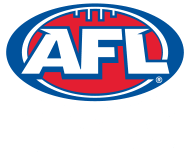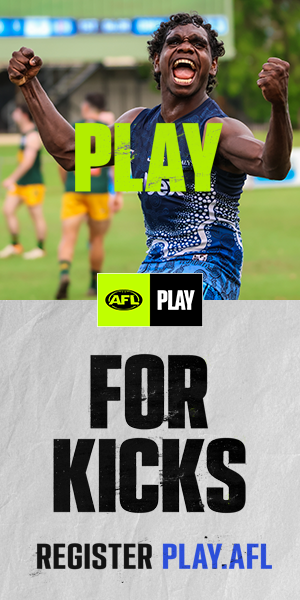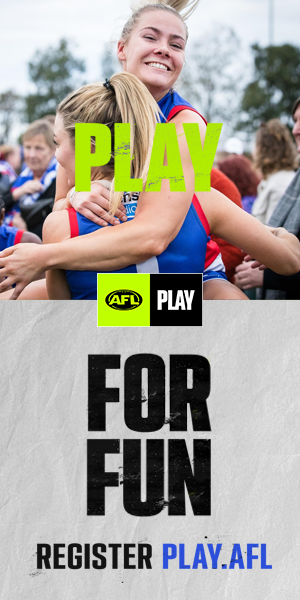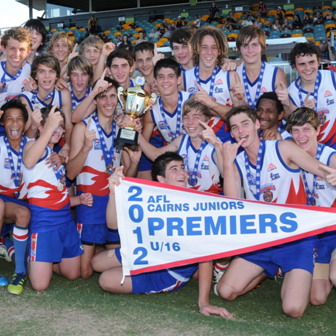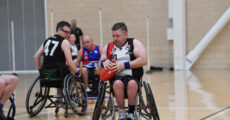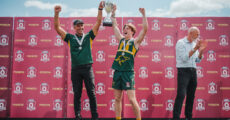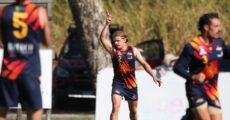Community football clubs are the very foundation of football and AFL Queensland is committed to the development of clubs across the State.
The Quality Club Program is a club based accreditation program that recognises quality club administration by volunteers and promotes positive environments within our clubs. A three stage program, clubs start at Bronze and can progressively work through the program.
Each month we will profile one of our accredited clubs to find out what makes them an AFL Queensland Quality Club.
This month we spoke to Renae Kunda, Centrals Juniors club President.
AFLQ: Tell us a little about the history of Centrals JAFC
RK: Centrals Football Club originated in 1958 and played in the CAFL (Cairns Australian Football League) the following year. In 1963, a decision was made to merge Centrals and Aloomba based on their increasing difficulty to recruit sufficient players. Centrals/Aloomba won their first senior flag in 1967. From there the premierships rolled in with a three-peat of flags in 73-74 and 75 and back-to-back in 78 and 79. In 1984, the club moved to Trinity Beach, changing their name to Centrals Trinity Beach as the same time. The junior club, Centrals Junior AFL Inc was incorporated on February 13 2004.
AFLQ: Who are the key people that have helped shape the club and how have they been involved?
RK: There are too many to list and there is no “I” in team.
AFLQ: Where can you watch your teams in action?
RK: We have an under 8, an under10, two under 12s, an under 16 and an under 18 team playing in the Cairns juniors competition. Our under 16 team are the 2012 Premiers.
AFLQ: What makes you a Quality Club?
RK: Centrals JAFC has become a quality club through the recruitment of business minded volunteers. The club has produced a “whole of club” development plan that is very comprehensive. It takes the ownership and guesswork away from new committee members and helps to builds a bridge for them to continue on a successful path. Each volunteer writes a report to be entered into the plan developing the plan each year, this means that the club is able to maintain and increase its information portfolio through shifting hands.
AFLQ: What is unique/special about your football club?
RK: Every club has a passionate and active volunteer base of parents, we do to, but our point of difference is that we try to fill executive positions with business minded volunteers so that the club is run in a professional manner. The roles are rotated regularly to allow for fresh ideas to be administered and implemented saving the club from becoming stagnated.
AFLQ: What are some of the challenges you have faced developing the club and how did you overcome these problems?
RK: The hardest thing to overcome is “old culture – we do as, it has always been done”. Getting new ideas is difficult, implementing them is harder but the rewards are grand. The only way to smooth the ruffled feathers is to do lots of HEARING not talking. We found that if the folks are heard and their ideas considered that they will accept change.
AFLQ: What advice would you have for developing clubs?
RK: Proper planning prevents poor performance, write it down and hand it over to new committees
AFLQ: What fundraising methods have been successful?
RK: We bought a slushie machine, it was a huge expense and we thought it would take two years to pay off. It was a big decision. Its safe storage was a hurdle in the process. It has been the best fundraising decision we ever made with it paying itself off in the first season.
AFLQ: Do you have any great ways to attract volunteers?
RK: The million dollar question. Not really! We do try to be friendly and sociable at all of our functions to attract new playmates. After all if you are giving up your time you have to have fun doing it.
Our committee is a well oiled machine that makes us appear to be under control, this can be a negative thing as new volunteers feel like they would be under toe and so don’t offer. Sometimes you have to look a little flustered to get the offer.
AFLQ: Where is the club going in the future / current goals?
RK: We have obtained the numbers to be the largest club in our region but we’d like to grow that by 2.5% – 5% each year. We have strategies in place to develop our grounds to match the volume. Then we’d like to develop improved pathways between the junior and senior teams and obviously aim for better performance on the field each year.
AFLQ: Describe your football club in three words.
RK: Kinda laid back, that’s from our theme song 🙂
CLICK HERE for more innformation on the Quality Club Program
